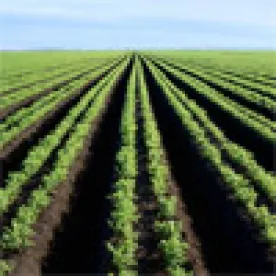An overlooked provision in the new Farm Bill will soon be getting more attention from specialty crop farmers as they begin purchasing insurance for next year’s crops. Under “conservation compliance,” all producers must now certify with U.S. Department of Agriculture (USDA) that their farming operations keep with federal mandates. If producers fail to provide that certification, they cannot receive the federal assistance that most crop insurance policies currently rely on.
This conservation compliance mandate has been applied to traditional program crops for a number of years. If those producers were to receive their farm subsidies, they also had to be compliant with conservation mandates. As the new Farm Bill transitions those farm subsidy programs into a crop insurance model, it was assumed by certain policymakers that this provision would likewise transition with little impact.
Many in the specialty crop industry voiced strong concerns about the application of this program crop requirement onto an entirely new sector of agriculture without appropriate study of its costs and benefits. However, the provision was accepted in the Agricultural Act of 2014, and is now in the process of being implemented.
What does this mean for specialty crop producers? Under the current process, each farm would need to establish an identification number with USDA and then provide certification that the farming operation complies with applicable conservation requirements. This certification applies not only to a single farm, but also to all “affiliated entities,” such as other family members or partnerships. If one portion of the overall entity is out of compliance, then the entire farming operation is ineligible for receiving the federal premium assistance for crop insurance.
For example, a farmer who grows citrus in California would have to be compliant on all that acreage, as well as lettuce that she may produce in Florida, regardless of whether the noncompliant acreage has a crop insurance policy applied to it. Even if a farm exclusively produces “exempted” commodities, such as tree fruit, grapes or berries on perennial bushes and shrubs, the owner must still certify her operation with USDA.
This certification must be provided to the Farm Service Agency by June 1, 2015. If producers fail to file by that date, then they will be deemed ineligible for federal premium assistance should they attempt to purchase crop insurance.
The specialty crop industry is attempting to minimize the bureaucratic burden with the federal government, but the rules will not be made public until late winter/early spring 2015. With the June 1, 2015, date for certification, there will be little time to train producers on what their full requirements are for this new mandate.




 />i
/>i
